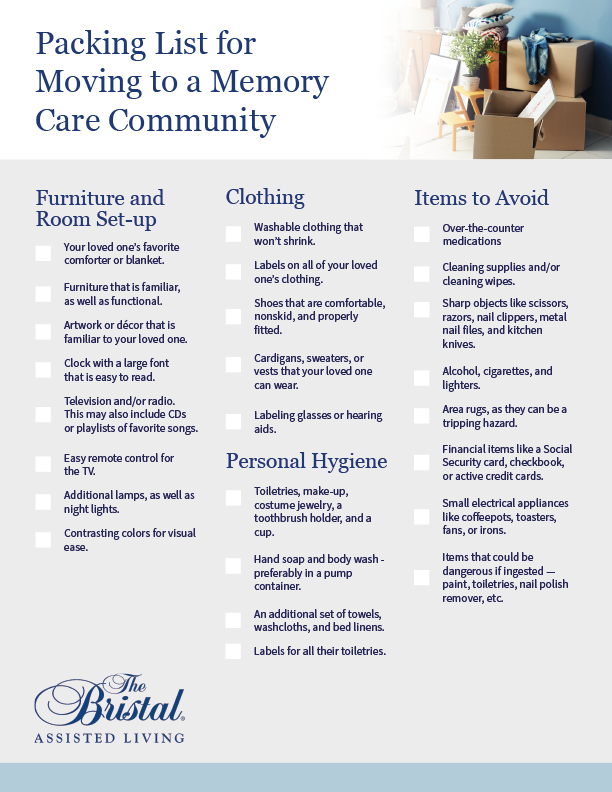High-Quality Care Plans Offered With Alzheimers Care Charlotte Centers
High-Quality Care Plans Offered With Alzheimers Care Charlotte Centers
Blog Article
Creating a Safe and Supportive Environment for Alzheimer's Treatment
The development of a risk-free and helpful setting for individuals with Alzheimer's is paramount in improving their top quality of life. This involves not just physical adaptations within the home, such as reducing hazards and including acquainted aspects, yet additionally the application of structured routines and meaningful tasks that provide to their cognitive requirements. Moreover, comprehending the psychological and psychological dimensions of treatment can considerably affect their sense of security and connection. Exploring these diverse approaches can disclose critical understandings right into efficient caregiving approaches that might transform the daily experiences of both individuals and caregivers.
Recognizing Alzheimer's Demands
Frequently, people with Alzheimer's condition exhibit an array of demands that require customized techniques to care. As the problem progresses, cognitive decline shows up in various methods, affecting memory, thinking, and also the capability to carry out day-to-day activities. Caretakers should acknowledge these progressing needs to give ideal support and make certain a greater high quality of life for those impacted.
One vital facet of comprehending Alzheimer's needs is identifying the significance of regular and experience. Individuals commonly locate convenience in well established patterns, which can minimize anxiety and confusion. Caretakers must aim to develop organized daily routines that incorporate significant activities straightened with the individual's capabilities and passions.
Furthermore, effective interaction is critical. People with Alzheimer's might have a hard time to reveal themselves or comprehend complicated language. Caretakers need to use basic, clear language, usage non-verbal signs, and technique active paying attention to cultivate understanding and link.
Finally, emotional and social requirements can not be overlooked. Supplying possibilities for social communication and maintaining partnerships can significantly improve emotional well-being. Caretakers must motivate engagement in neighborhood activities or family members celebrations, advertising a feeling of belonging and objective. Comprehending these varied needs is vital for creating a supportive care environment.
Creating a Safe Home
Developing a safe home for people with Alzheimer's illness is crucial to promoting and reducing dangers self-reliance. The design of the living room need to prioritize security while enabling individual convenience. Eliminate prospective dangers such as loose rugs, sharp objects, and clutter, which can lead to drops or mishaps. Make certain that pathways are well-lit and clear, as proper illumination reduces disorientation and improves flexibility.
Including flexible features is likewise vital. Install grab bars in washrooms and near stairways, and consider utilizing non-slip floor coverings in wet locations. Furthermore, making use of contrasting colors for walls and floorings can aid in identifying areas, aiding to alleviate confusion.
Knowledge is very important for individuals with Alzheimer's. Personalizing the setting with familiar items and photos can strengthen a feeling of belonging and safety - Alzheimers Care Charlotte. It is additionally valuable to have an assigned area for daily tasks, such as reading or crafting, which can supply structure to their day
Lastly, executing a secure outside room permits for safe exploration while getting in touch with nature. By thoughtfully creating the home atmosphere, caregivers can substantially improve the top quality of life for people living with Alzheimer's illness.
Enhancing Communication Skills

Non-verbal interaction, including faces, motions, and touch, plays an essential function in sharing compassion and understanding. Preserving eye contact and a calm disposition can boost the convenience level of the individual, advertising a sense of safety and security.
Additionally, it is crucial to exercise energetic listening. This includes being completely present, showing persistence, and allowing the person to reveal themselves without interruption. Repeating might be essential; caregivers need to be prepared to review subjects or concerns, as people with Alzheimer's might battle with memory recall.
Additionally, utilizing visual aids or hints, such as photographs or familiar objects, can assist in acknowledgment and engagement. Inevitably, boosting communication skills is regarding constructing count on and developing an environment where individuals really feel heard, valued, and recognized, thus improving their quality of life.
Motivating Social Communication
Promoting purposeful social interactions can significantly enhance the wellness of people with Alzheimer's illness. Engaging with others not only helps battle feelings of isolation yet additionally boosts cognitive function and emotional health and wellness. Structured social tasks, such as group crafts, arts and games, or music therapy, create chances for homeowners to get in touch with peers and caregivers, which can result in boosted mood and minimized stress and anxiety.
Producing an inviting atmosphere that urges socialization is crucial. This can be attained by organizing common spaces that promote communication, such as comfy seating areas or activity spaces. Additionally, integrating culturally relevant and familiar tasks can trigger memories and urge participation, permitting people with Alzheimer's to really feel even more linked to their past experiences.
In addition, caretakers need to be educated to acknowledge and promote social involvement among additional info residents. Simple gestures, such as launching discussion or facilitating tiny seminar, can assist people really feel valued and consisted of. Consistently arranged get-togethers must be regular yet adaptable, suiting differing degrees of capacity and interest. By prioritizing social interaction, we can check my source considerably enhance the lives of those coping with Alzheimer's, cultivating a feeling of neighborhood and belonging.
Supporting Caretaker Well-being

To support caretakers, organizations need to supply normal training and academic resources to boost their understanding of Alzheimer's illness and caregiving techniques. Providing access to reprieve care services enables caregivers to take required breaks, lowering anxiety and tiredness - Alzheimers Care Charlotte. Additionally, fostering a community via support teams can facilitate emotional sharing and the exchange of sensible suggestions amongst caregivers, producing a network of shared support
Mental wellness resources, such as counseling services, can also be important in addressing the emotional toll caregiving can take. By focusing on caregiver health, we produce an even more sustainable caregiving atmosphere that not just profits the caretakers themselves but also boosts the general high quality of care received by people with Alzheimer's. Eventually, sustaining caregivers is a necessary element in cultivating a efficient and caring care setup.
Conclusion
To conclude, the development of a helpful and secure atmosphere for people with Alzheimer's is important to enhancing their lifestyle. By focusing on safety and security via thoughtful style, promoting emotional well-being with familiar elements, and promoting interaction through structured routines, caretakers can considerably affect the general experience of those influenced by this condition. More Bonuses Sustaining caregiver health is essential, as it ultimately contributes to an extra reliable and thoughtful care atmosphere.
Repetition might be required; caregivers should be prepared to review subjects or questions, as individuals with Alzheimer's might struggle with memory recall.

Report this page